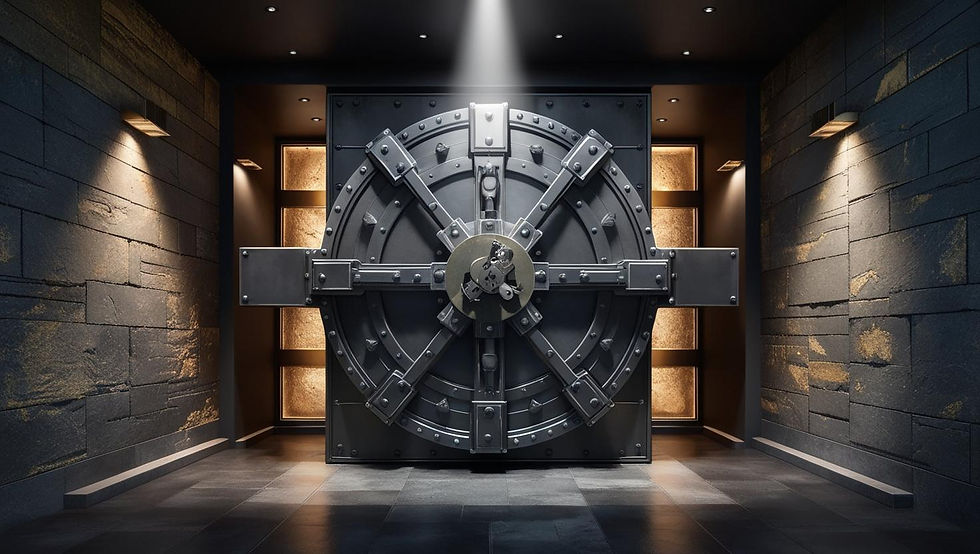Safeguarding Intellectual Property: The Power of a Data Privacy Vault in Protecting Company Information
- Gurvinder Brar

- Feb 24
- 3 min read
The Benefits of Using a Data Privacy Vault for Protecting Intellectual Property and Company Information In today's digital age, protecting sensitive data, including intellectual property and company information, is paramount for any organization. One robust solution that has gained significant attention is the use of a data privacy vault. Here, we explore the benefits of employing a data privacy vault for safeguarding your critical assets, particularly in the context of hard drive swaps and general data storage.
Enhanced Security Through Advanced Encryption and Tokenization A data privacy vault is designed to provide a highly secure environment for storing and managing sensitive data. It utilizes advanced encryption techniques to ensure that data is protected both at rest and in transit. This means that even if unauthorized access is gained to the main infrastructure, the encrypted data within the vault remains unreadable without the appropriate decryption keys or tokens.
Isolation and Reduced Risk of Data Breaches One of the key features of a data privacy vault is its ability to isolate sensitive data from other systems, significantly reducing the attack surface. By storing personally identifiable information (PII) and other sensitive data separately, the risk of data breaches is substantially mitigated. Even in the event of a hard drive swap or system compromise, the isolated nature of the vault ensures that sensitive information remains secure.
Fine-Grained Access Controls and Multifactor Authentication Data privacy vaults implement stringent access controls, including multifactor authentication and role-based access. This ensures that only authorized users and systems can access specific data elements, further enhancing the security of your intellectual property and company information. Two-factor authentication, for instance, requires users to provide two different forms of identification, adding an extra layer of security against unauthorized access.
Compliance with Regulatory Requirements Navigating the complex landscape of data privacy laws, such as the General Data Protection Regulation (GDPR) and the California Consumer Privacy Act (CCPA), is a significant challenge for organizations. A data privacy vault is designed to help meet these regulatory requirements by providing features such as data masking, tokenization, and detailed audit trails. These measures facilitate compliance and protect against legal and financial penalties associated with non-compliance.
Detailed Audit Trails and Governance A data privacy vault maintains detailed records of all data access activities, generating audit logs that document who accessed the data, when, and for what purpose. This capability allows organizations to monitor and analyze access to sensitive data, quickly detecting any suspicious or unauthorized activity. Such governance ensures transparency and accountability, which are crucial for maintaining the integrity of your intellectual property and company information.
Enhanced Customer Trust and Reputation By using a data privacy vault to protect sensitive user data, organizations can demonstrate their commitment to data security and privacy. This commitment can significantly enhance customer trust and improve the organization's reputation. In an era where data breaches can lead to severe reputational damage, a data privacy vault serves as a robust safeguard against such risks.
Polymorphic Encryption for Functional Data Handling Advanced technologies like polymorphic encryption enable secure yet functional data handling within the vault. This allows for operations such as querying and analytics to be performed on sensitive data without exposing the underlying PII, ensuring that your intellectual property and company information remain secure while still being usable for business purposes.
In conclusion, a data privacy vault offers a comprehensive solution for protecting intellectual property and company information. With its advanced encryption, isolation, fine-grained access controls, compliance features, and detailed audit trails, it significantly enhances data security and reduces the risk of data breaches. As data protection regulations continue to evolve, a data privacy vault stands as a vital tool for any organization committed to safeguarding its sensitive data.










Comments